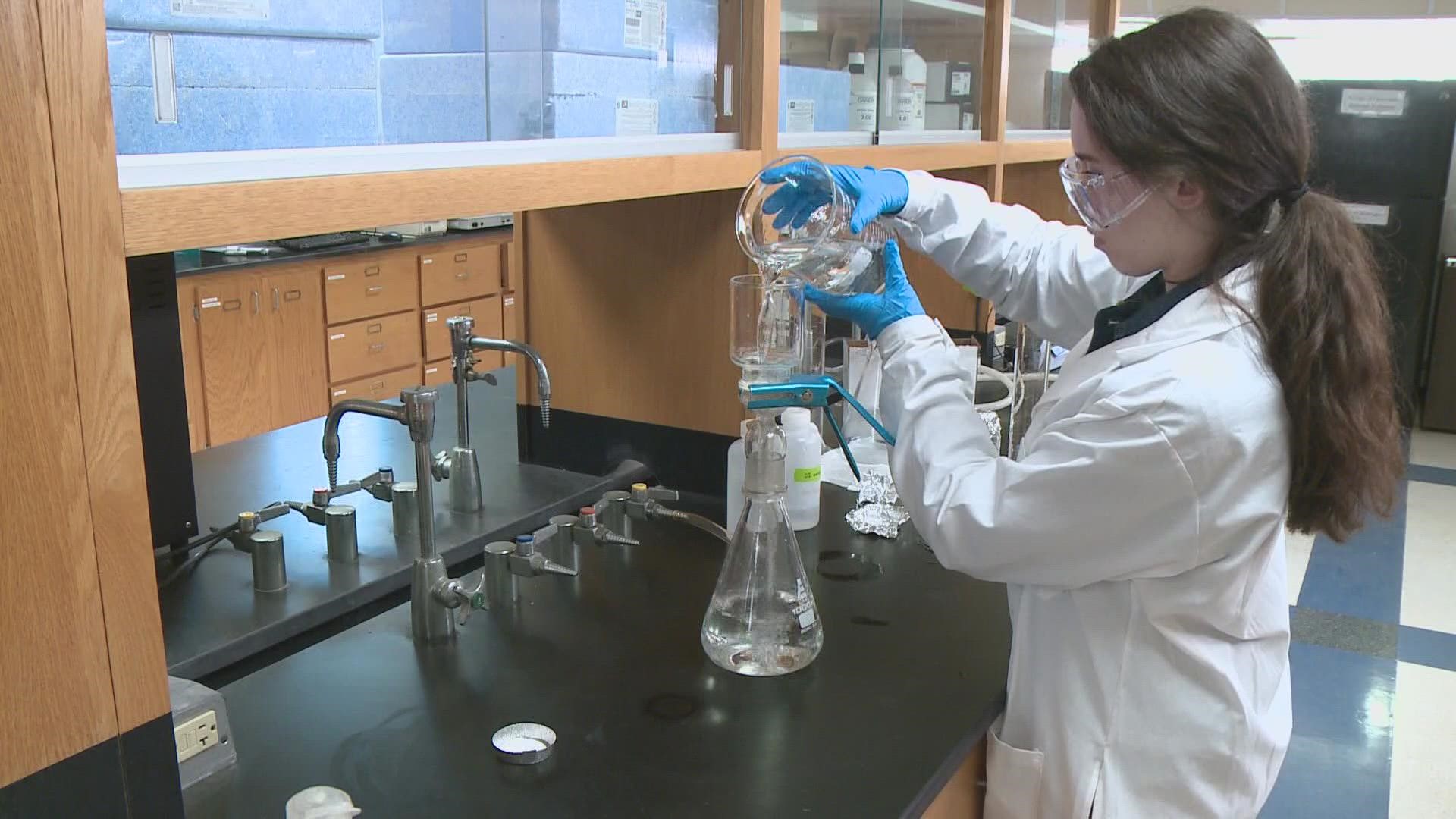ORONO, Maine — They are called "forever chemicals" because they do not naturally break down in the environment and the human body. The compounds known as PFAS, or per- and polyfluoroalkyl substances, are found in numerous products from cookware to carpets to packaging.
But a University of Maine researcher believes he may have found a way to take the "forever" out of the compounds.
Onur Apul and his team are focusing on existing water filtration technology and trying to use it to find a solution to a growing public health crisis.
Apul is an assistant professor of civil and environmental engineering at UMaine. Over the next several years he and his team will be researching how to eradicate PFAS chemicals—compounds considered virtually indestructible.
Utilizing a quarter-of-a-million dollar grant from the National Science Foundation, the focus is on water filtration systems used by homeowners and municipalities to filter out toxic chemicals.
"If we recover spent water filter materials, can we also destroy PFAS?" Apul said.
Those water systems use granular-activated carbons that are slightly larger than coffee grounds to pull PFAS out of drinking water.
The spent carbons end up in the runoff of landfills, putting rivers and other waterways at risk for contamination. Apul said recycling the carbons through thermal regeneration may wipe out the captured PFAS.
"We think at lower temperatures than expected we can destroy PFAS again giving us an upper hand at a lower energy footprint," Apul explained.
Apul, who has researched PFAS for more than seven years, said some studies show PFAS attached to carbons decompose through the thermal process.
Finding out what properties of the carbons and the industrial compounds destroy PFAS and still allow carbons to be recycled is expected to take several years. But eventually, it could lead to a possible solution to help residents and communities dealing with contamination.
"We are happy to help them to overcome this unprecedented public health crisis, in the short and long term," Apul said.
For resources and information on the Maine Department of Environmental Protection's ongoing investigation into the presence of PFAS in soil and groundwater at licensed sludge/septic land application sites, click here.
For information on possible health impacts from PFAS exposure according to the Agency for Toxic Substances and Disease Registry, click here.

